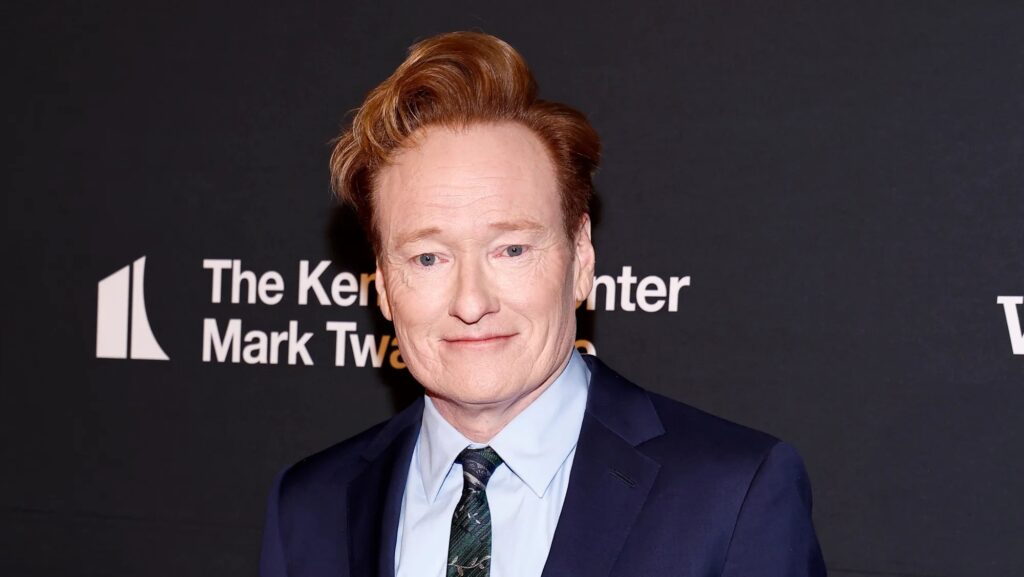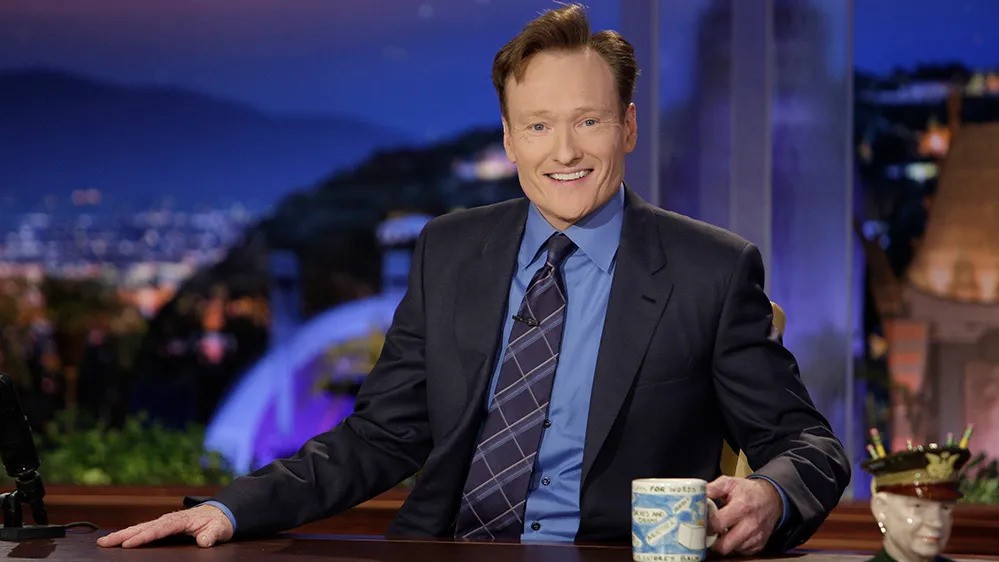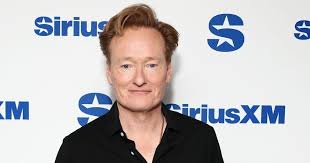Conan O’Brien has never been one to shy away from the truth, even when it comes wrapped in the kind of irreverent humor that has defined his career for more than three decades. During his induction into the Television Academy Hall of Fame on August 16, the longtime comedian and late-night staple delivered a message that, depending on how you look at it, was either sobering or oddly hopeful: the late-night television format as we’ve known it for nearly 80 years is coming to an end. But the voices that made it matter—voices like Stephen Colbert, Seth Meyers, Jimmy Fallon, and others—are not going anywhere. They will adapt, evolve, and likely thrive in ways audiences can’t fully see yet.
When O’Brien stood on that stage and declared, “Late-night television, as we have known it since around 1950, is going to disappear,” it wasn’t meant as a funeral announcement. Instead, it was a reminder of the constant reinvention that entertainment demands. Television itself has always been a medium of change, and late-night, with its reliance on topical humor, daily production, and cultural immediacy, has been one of its most sensitive barometers. If audiences change how they consume media, then the survival of a format depends on whether it can keep up. In O’Brien’s view, the traditional late-night show has finally reached a point where it cannot.
His comments carried particular resonance because they came just weeks after CBS stunned the television world by canceling The Late Show with Stephen Colbert. The network’s official explanation was financial: the economics of late-night, once reliable and steady, no longer add up in an age where streaming platforms, podcasts, TikTok clips, and YouTube shorts capture the attention of younger audiences more effectively than a full hour of broadcast television ever could. For many, the cancellation felt like a seismic shift, the clearest sign yet that the ground beneath late-night has been eroding faster than networks have been willing to admit.
O’Brien, however, was quick to stress that while the format may vanish, the talent will not. “People like Stephen Colbert are too talented, and too essential, to go away,” he said during his speech. “It’s not going to happen. Stephen is going to evolve and shine brighter than ever in a new format that he controls completely.” That optimism reflects O’Brien’s own trajectory. After spending nearly 30 years in the trenches of late-night—from his breakthrough stint on Late Night with Conan O’Brien to his run on The Tonight Show and eventually Conan on TBS—he walked away in 2021. Yet retirement wasn’t on his mind. Instead, he pivoted toward formats that felt more in step with the moment. His podcast, Conan O’Brien Needs a Friend, has become a smash success, connecting with millions of listeners each month. He has also branched into streaming with the HBO Max travel series Conan O’Brien Must Go, and in 2025 he even hosted the Academy Awards, with plans to return in 2026. In other words, he’s not just predicting a future beyond late-night; he’s living it.
That lived experience gives his words weight. When O’Brien jokes that “late-night television was a service designed to distract college students until science could perfect the internet and online pornography,” he’s not simply making a punchline. He’s acknowledging a cultural truth: late-night was built for a world where audiences had limited options late in the evening, when the combination of comedy, interviews, and music was the perfect capstone to a day. That world no longer exists. Now, viewers can summon entertainment instantly, at any hour, from an endless buffet of platforms. The old appointment-viewing ritual of staying up late to catch Johnny Carson’s monologue or David Letterman’s Top Ten list feels quaint in a streaming-first landscape.
But even as he acknowledged the end of an era, O’Brien emphasized resilience. “We’re having this event now in a time when there’s a lot of fear about the future of television, and rightfully so,” he said. “The life we’ve all known for almost 80 years is undergoing seismic change. But this might just be my nature: I choose not to mourn what is lost because I think, in the most essential way, what we have is not changing at all. Streaming changes the pipeline, but the connection, the talent, the ideas that come into our homes? I think it’s as potent as ever.”
It’s an important distinction. The pipeline—the means by which content is delivered—may evolve or collapse, but the talent remains constant. Audiences may no longer see Colbert on CBS at 11:35 p.m., but they could just as easily see him on a streaming platform, a digital-first comedy network, or even running his own show on YouTube or Spotify. In fact, there’s a strong case that these new platforms might allow late-night veterans to exercise more creative control than broadcast networks ever permitted. For decades, the format was rigid: monologue, desk bit, guest interview, musical act. There was room for experimentation, but only within those boundaries. Now, freed from the constraints of time slots and network budgets, these hosts could build entirely new ways of connecting with audiences.

For O’Brien, that possibility isn’t abstract. He has already demonstrated how a late-night sensibility can translate into podcasting. Conan O’Brien Needs a Friend retains the loose, conversational humor that made his talk shows work, but it does so in a way that feels fresh and intimate. It’s not just a replacement for late-night; it’s something that could never have existed on television in the first place. In this sense, O’Brien is not just predicting the end of late-night but showing the path forward for those willing to adapt.
Not everyone, of course, has embraced the transition with the same confidence. Seth Meyers, host of NBC’s Late Night, has admitted to his own anxieties about the sustainability of the genre. Speaking on the Armchair Expert podcast, Meyers said, “I shifted from fearing that I wouldn’t be good enough, and now, my fear is weirdly more outside of my control, which is at some point, the ecosystem might not support it. I guess that’s better than thinking it’s your fault, but it is weird to not feel any control over it.” Meyers’ comment underscores the precariousness of late-night today: the talent can be sharp, the writing tight, the guests compelling, but none of it matters if the platform itself collapses under the weight of shifting audience habits and shrinking advertising revenue.
This sense of instability is not new. Late-night has been in flux for more than a decade, with ratings steadily eroding and younger viewers increasingly indifferent to the format. In the 2010s, when O’Brien, Colbert, Fallon, and others competed for dominance, there was still a sense that late-night could reinvent itself for the streaming age, particularly through viral clips on YouTube and social media. Fallon’s lip-sync battles, for example, regularly racked up tens of millions of views online, far surpassing the live broadcast audience. Yet as social media platforms became the main stage for these moments, the shows themselves became almost secondary. Why tune in every night when the best bits would be available to watch the next morning, stripped of context and consumed in under five minutes?
That paradox lies at the heart of the format’s decline. Late-night created viral content but in doing so, it undermined the necessity of the show itself. Networks continued to cling to the nightly model, even as the culture moved on. Eventually, the math stopped working. Colbert’s cancellation may be the first big domino to fall, but few expect it will be the last.
And yet, O’Brien’s Hall of Fame speech reminds us not to confuse the end of one format with the death of an art form. Comedy will adapt because comedy always has. When vaudeville died, comedians thrived on radio. When radio declined, they dominated television. And when television fragments under the weight of streaming and digital content, comedians will once again find new ways to reach audiences. O’Brien, ever the historian of his own craft, seems keenly aware of this continuity. His optimism is not naïve; it’s rooted in the resilience of the craft he has dedicated his life to.
If anything, the future might look more diverse, more experimental, and more democratic than late-night ever allowed. Instead of a handful of network-approved hosts competing for the same time slots, audiences may have dozens of options, from polished streaming productions to intimate podcasts to interactive digital formats. In such a landscape, the next generation of Conan O’Briens or Stephen Colberts won’t need to wait for a network executive’s blessing; they’ll simply create their own shows and build audiences directly.
In this sense, O’Brien’s Hall of Fame induction speech wasn’t just about nostalgia or prediction. It was a passing of the torch, not from one host to another, but from one era to the next. The late-night we knew may disappear, but the essence of it—the humor, the commentary, the connection—remains eternal. O’Brien himself embodies that truth, having moved seamlessly from network television to podcasting, streaming, and beyond. And if he can do it, others can too.

For audiences who grew up with late-night as a nightly ritual, the transition may feel bittersweet. The comfort of tuning in to see Carson, Letterman, Leno, or O’Brien himself has been woven into the fabric of American culture for generations. Its decline marks the end of something familiar, something that once felt unshakable. But as O’Brien reminded his audience that night, endings are often beginnings in disguise. What matters is not the format but the talent, not the pipeline but the connection.
So as the lights begin to dim on traditional late-night, the spotlight shifts to something new. Maybe it will be Colbert running his own digital network, Meyers building a comedy empire through podcasting, or an entirely new voice rising through TikTok to become the next big thing. Whatever shape it takes, one thing seems clear: Conan O’Brien isn’t worried, and maybe we shouldn’t be either.



